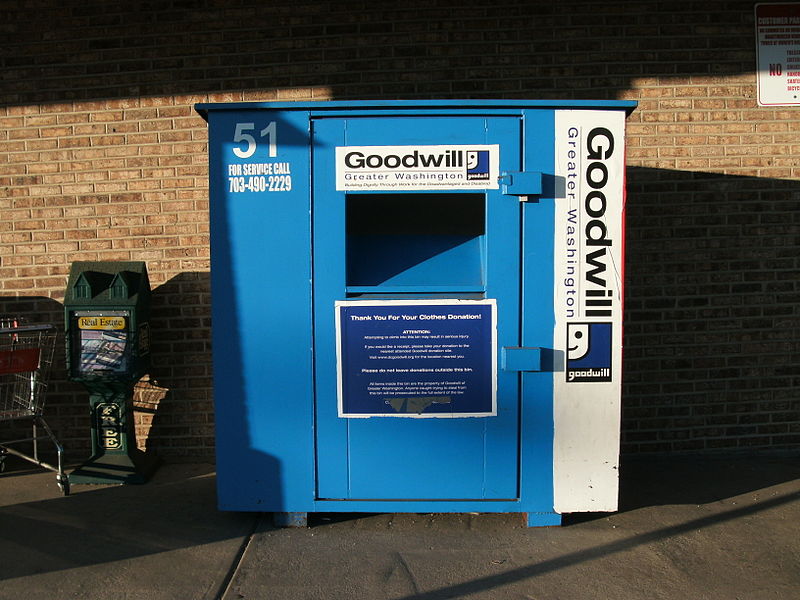On January 17, 2016, Goodwill unexpectedly shut the doors of its Toronto and Eastern, Central, and Northern Ontario retail and drop-off locations. The non-profit’s employees were given no notice, were left with unpaid wages, and had no information regarding the status of their jobs. A lawyer for the Canadian Airport Workers Union, which represents Goodwill’s employees, called the workers’ situation “legal limbo.”
Goodwill’s board, which resigned at news of the shutdown, attempted to explain the situation in a January 18th release: “There are significant business challenges, including shifts in the value of the salvage marketplace, declining retail sales and the need to restructure retail store costs. These are the business realities that led the board to resign.”
Credit: Albert Herring.
Goodwill’s 430 employees in the region, many of whom are low-income individuals, were left with limited options. They received no records of employment, which made it impossible to apply for employment insurance benefits. It was also unclear if they had been terminated or laid off, an important distinction for the viability of a wrongful termination lawsuit.
According to Legalinfo.com, the “sale or shut down of a business is not usually reason to dismiss you without notice.” The website lists quite restrictive circumstances in which an employee can be suddenly terminated: “Your employer may be justified in dismissing you without notice if: you repeatedly or in some serious way failed to do your job properly, or; you have acted in a way that makes it clear to your employer that you no longer wish to work for the company.”
Neither seemed to be the case for the employees, many of whom arranged a protest at Goodwill Scarborough on January 18. According to their contract, the company was mandated to give workers 30 to 60 days’ notice before shutting down locations.
“The 450 workers are now suddenly without jobs, which is devastating on its own,” said union Vice-President Artan Milaj. “But Goodwill stores also help a lot of low-income people with community programming and affordable shopping. We need to get these stores open and our members back on the job.”
Rather than take immediate legal action, though, the union decided to delay and give the non-profit a grace period to remedy the situation. By the 22nd, even Ontario Premier Kathleen Wynne had words for Goodwill.
“We don’t know exactly what has happened here, but… there’s a lot of training and employment dollars that go into the Goodwill organization,” the Premier said. “It’s been an institution in this province, and so it’s very important that we find out exactly what happened.”
While the details of the situation are still muddled, the company’s staff received some good news January 22, with the release of a statement from Ms. Nakamura.
“Goodwill staff can expect to receive pay into their bank accounts by end of day today,” the statement read, adding that the time would “vary depending on the individual’s financial institution.” Several employees confirmed the receipt of their paycheck that day to the CBC.
While the recovery of lost wages are surely a silver lining for Goodwill’s four hundred-plus employees, the vast majority of them are now without a job. The potential for a wrongful dismissal suit remains on the table.






